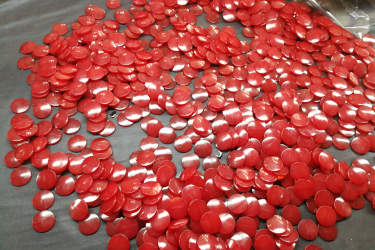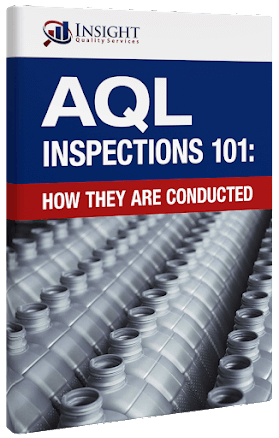What Does MOQ Mean? Here’s What You Need to Know


Table of Contents
If you’re getting started as an eCommerce seller and looking for manufacturers, you may have come across the term MOQ and been confused by it.
What is MOQ?
MOQ stands for “Minimum Order Quantity” and it’s the minimum number of pieces of a product that a supplier will sell to you.
For example, imagine that you’re browsing a platform like Alibaba for silicone AirPod cases. You come across a supplier and see that they require a minimum order of 50 pieces for single-color cases. If you want to add your logo to the cases or you need custom packaging, the MOQ becomes 500 pieces per order.
MOQs vary from supplier to supplier and from product to product.
As an importer, it may be discouraging to come across factories with high MOQs or to find suppliers that offer lower MOQs but higher prices. It’s important to understand, though, that these MOQs are not just arbitrary numbers.
There are certain things you need to understand about MOQ requirements.
Let’s talk about what they are.
How Do Suppliers Determine Their MOQs?
Suppliers tend to determine MOQs based on economies of scale.
Of course, a factory needs to be price competitive. Otherwise, they’ll have trouble finding buyers for their products. So they price their products according to the market and come up with an MOQ based on their margins.

Raw material and component prices can impact margins — think of a plastic cup that’s made of resin with a metal top and a metal base. The factory might produce the plastic part themselves and then buy the metal parts from a factory that specializes in stamped stainless steel.
They use plastic resin all the time for different products, and that means they have more of a cost advantage when producing plastic components. But since they’re buying the metal parts in smaller volumes, those components are more expensive for them.
When it comes to standard products that they sell in high volumes, they have more flexibility to offer a lower MOQ. A one-off, custom product requires more setup time and labor, so the MOQs for these products are higher, otherwise, they wouldn’t be worthwhile to produce.
The bottom line is that a factory’s minimum order quantity is not an arbitrary number. It is arrived at based on a variety of factors, all of which impact the factory’s profitability.
So, sometimes it is unreasonable to try and push suppliers to lower their MOQs.
With that in mind…
How Can You Negotiate MOQs With Suppliers?
Now that we’ve talked about the factors that go into a minimum order quantity, you may be wondering what you can do to get a good deal.
Of course, you can ask the factory to lower their MOQ, but if you are asking them to make concessions, you need to be willing to make some as well. Really, what you should be asking them is what you can do to make those concessions possible.

Perhaps you’ve asked for something custom, and the way that you get a lower MOQ is by purchasing something standard or something that’s not as extensively customized. Consider buying an item that they produce in higher volumes and can thus offer lower prices on.
Maybe you can be flexible about your timing and ask to piggyback on another customer’s order.
If your concern about the MOQ stems from the fact that you want to verify quality before placing a large order, you could ask to place a test order. On your test order, you’d pay a higher price per piece. If the quality meets your expectations, then when you place an order exceeding MOQ, the factory could refund the difference.
For example, the factory has an MOQ of 1,000 pieces and you place a test order for 250. You pay $15 per piece instead of $10 per piece. Later, you place a full order for 2,000 pieces and the factory gives you a credit of $1,250 (the $5 price difference times 250).
Good negotiation is about understanding the factors driving the other party’s request and being willing to compromise.
Also, when negotiating, there is one thing you need to be careful about…
Don’t Negotiate Your Way into Poor Quality Products
If you push suppliers too hard — whether it’s on price or MOQ — this can end up backfiring in the end.
Suppliers want to work with profitable customers that they have good relationships with. If you keep pressuring your manufacturers, they may cave to your demands but do so by sacrificing quality.
If their margins are thin, they might substitute in lower-quality materials to find some extra wiggle room. There is a phenomenon in low-cost manufacturing countries called quality fade, and you would do well to steer clear of it.
When you finally do end up coming to an agreement about price and order quantity, be sure to put your most professional foot forward and submit a complete purchase order. This will help you to protect your interests as an importer.
You should also consider conducting third-party product inspections to help ensure product quality.
If you are working with a new factory and want to learn more about how to conduct a product inspection, we recommend downloading the following guide.
Free Guide
How to Prepare for an Inspection
Are you thinking of hiring a third-party inspection company? If so, you need to be properly prepared. No one knows your product better than you do. So, make sure you give your service provider the information they need to ensure that your inspections are a success. Download this free guide to successfully preparing for your product inspections.

AQL Inspections 101: How They are Conducted
Authors



